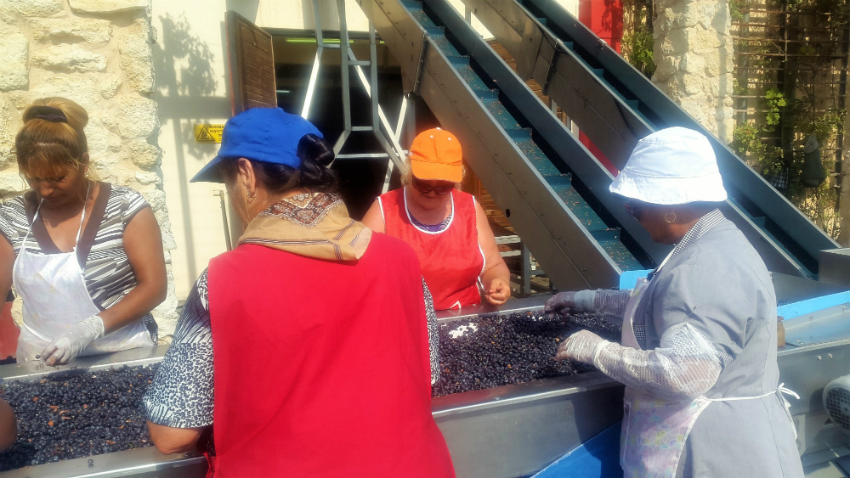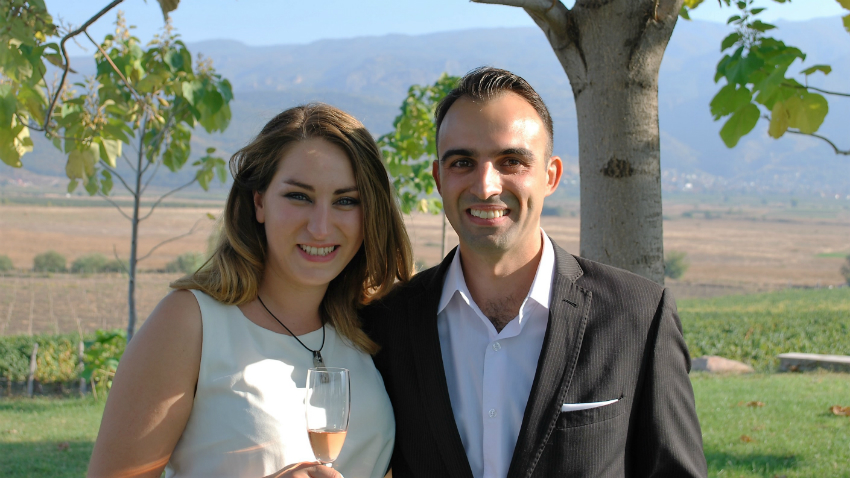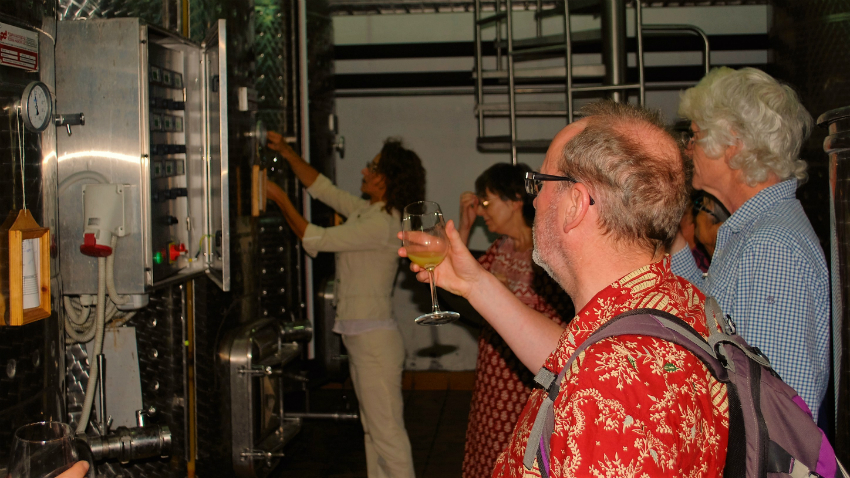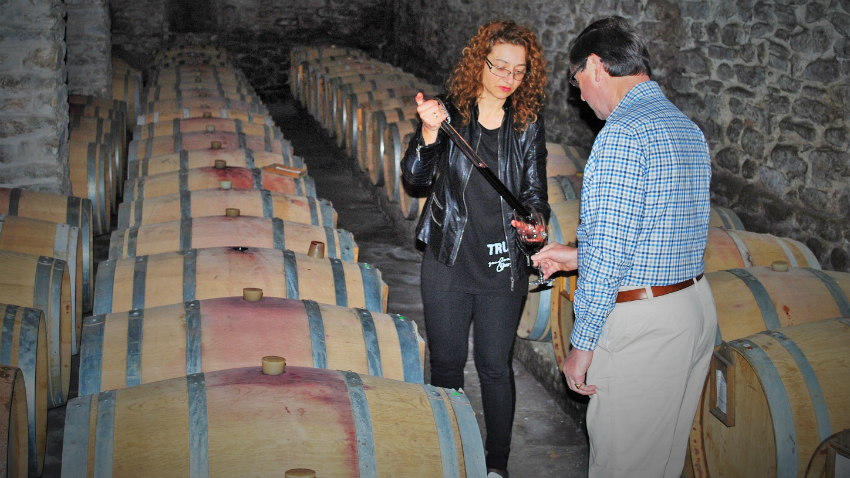 What do the vine and wine regions in Bulgaria have to offer? Vassil Zlatev from a wine tour company explains:
What do the vine and wine regions in Bulgaria have to offer? Vassil Zlatev from a wine tour company explains:
“There are five separate wine-growing regions in Bulgaria. The biggest, as regards number of wineries is the Thracian Valley. The region offers a host of different opportunities to combine wine with cultural tourism, SPA, eco and rural tourism. The places to go in the Rose Valley wine growing region are the wineries at the foot of the Balkan Range, but you can also see how rose oil is made or visit ancient Thracian burial mounds and discover the legacy of the Thracians – the first people to have started making wine in what are today the Bulgarian lands. The Struma River Valley is home to endemic varieties of grapes. This means that some of the wines in this region are made here, and here only. The Black Sea wine-growing regionoffers a splendid opportunity to combine a visit to wineries with a holiday by the sea. The sights to see if you opt for the Danubian Plain wine-making region include a museum of wine, a winery inside a cave and a winery, huddled amidst the Belogradchik rocks.”
 Founder of the winetour company is Zina Sorensen from Denmark. The idea to start a business in Bulgaria was born when Zina was doing research for her master’s thesis on the potential of wine tourism in Bulgaria. Asked what place Bulgarian wines occupy compared to the top wines of the world, she says:
Founder of the winetour company is Zina Sorensen from Denmark. The idea to start a business in Bulgaria was born when Zina was doing research for her master’s thesis on the potential of wine tourism in Bulgaria. Asked what place Bulgarian wines occupy compared to the top wines of the world, she says:
“Bulgaria used to be one of the biggest exporters of wine in the world in the 1970s and 1980s. However, the time of mass production is gone and forgotten. The new face of Bulgarian wines are small, boutique wineries with a focus on quality rather than quantity. That Bulgarian wines are high-quality is clear to see by the numerous awards they have won at international competitions in recent years –they are the wines of Central and Eastern Europe with the greatest number of awards bestowed. Bulgarian wines won 58 medals at the Concours Mondialde Bruxelles 2017 – a contest that is dubbed the United Nations of Fine Wines. This means Bulgaria is seventh in the world in the number of medals won.”

Wine tour programmes are not rigid and any additional requests can easily be fitted in, Vassil Zlatev explains.
“We offer three kinds of tours. Day trips, starting from Plovdiv or Sofia and including trips to wineries, a traditional lunch, a visit to a cultural landmark, a guide and transport. The three-day tours are perfect for a long weekend. Our six-day tours aim to acquaint guests with a given wine making region – we organize visits and wine tasting at wineries as well as sightseeing. We aim to demonstrate the wines in a given region, but also to acquaint guests with its history, culture, traditions, cuisine and nature. We regard our tours as a way to help promote Bulgarian wine, but also the culture and traditions of the country. Besides the abovementioned tours, we also offer bespoke tours – people tell us what they want to see, do and experience and we make them a custom-made offer. As a matter of fact, that was how most of our tours were originally created.”

Zina Sorensen says that most people who come to the country on wine tours are pleasantly surprised.
“They are surprised by the high quality of Bulgarian wine, the long standing traditions in wine making, Bulgaria’s rich history, the incredible cuisine and the amazing nature. Many of our guests know little about Bulgaria and are not sure what to expect when they come here. But having arrived, they are really impressed that there is such a gem in Southeastern Europe which is so easy to reach and is so affordable. Most of our guests come from Great Britain, USA and Australia. We recently had people coming from the Netherlands, Denmark and Sweden. We love to welcome people from different countries because we want to popularize Bulgarian wine and Bulgaria as a whole to as large an audience as we can reach.”
Photographs courtesy of Vassil Zlatev
English version: Milena DaynovaThe first museum of investment gold is welcoming visitors in Plovdiv who want to learn more about the history of money and its connection to gold – from the birth of gold, its cosmic origin, and its journey to Earth, to how this precious metal has..
The diplomas from the 11th master class in radio journalism of the Bulgarian National Radio – BNR Academy were awarded at a solemn ceremony on November 14. The lectures and practical classes in modern forms of radio journalism build on the professional..
Italy investigates claims of hunting of people in Sarajevo in the 1990s The prosecutor's office in Milan has launched an investigation into shocking reports of organized "sniper safaris" in Bosnia during the war in..
From fear and doubts to joy and support – Bulgarians react differently to the upcoming introduction of the euro on January 1, 2026. For..
Teodora Byalkova joined the Bulgarian Sunday school "Sts. Cyril and Methodius" in Athens in the 2022/23 school year. At that time, she..
On the eve of Christian Family Day, 21 November, dozens of couples from Dimitrovgrad renewed their wedding vows after spending more than half a century..

+359 2 9336 661
